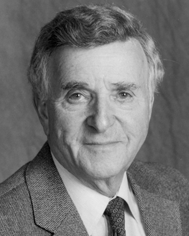Obituary: Professor Michael Lappert
Professor Michael Lappert, a familiar figure on the Sussex campus, has died at the age of 85.
 He made major contributions to the revival of UK inorganic chemistry after 1950 and to the reputation of the former School of Chemistry and Molecular Sciences at Sussex, which became a world-class research centre for organometallic chemistry.
He made major contributions to the revival of UK inorganic chemistry after 1950 and to the reputation of the former School of Chemistry and Molecular Sciences at Sussex, which became a world-class research centre for organometallic chemistry.
Mike was born in Czechoslovakia and came to London as a Kindertransport refugee.
He graduated with a first from the Northern Polytechnic in 1949, obtained his PhD two years later, and by 1957 was a senior lecturer.
Following three years at UMIST (University of Manchester Institute of Science and Technology), he joined Sussex as Reader in 1964 and was promoted to Professor in 1969.
Mike was elected a Fellow of the Royal Society (FRS) in 1979 and was President of the Dalton Division of the Royal Society of Chemistry from 1989-91. (Interestingly, he owned Dalton’s cottage in the Lake District. John Dalton (1766–1844) was an English chemist, meteorologist and physicist.)
He received the prestigious Kipping Award of the American Chemical Society in 1976 and numerous other international honours and named lectureships.
His most recent award in 2013 was an honorary degree from the University of Murcia.
Mike published over 800 papers on a huge range of subjects and it is rare even now to find any issue of the leading journals in inorganic or organometallic chemistry without references to his seminal work.
His pioneering research covered almost every element in the periodic table and many organometallic compounds (involving a metal joined to an organic fragment), which are of enormous importance in catalysis, and the synthesis of drugs, plastics and new materials.
He was the first to show how to increase the stability of often transient species, by imaginative choice of the organic fragment, thereby facilitating deeper understanding of the underlying chemistry.
Mike was a polymath and could talk knowledgeably about art, literature, theatre, opera, politics and sport. Those of us who knew him enjoyed many interesting conversations on controversial topics.
He was extraordinarily kind and generous with his time and advice, especially with younger colleagues and his students, many of whom went on to distinguished careers in universities or industry. Typical comments in emails received the day after he died referred to Mike as “a great mentor” and “truly an inspiration”.
Mike was active until the end of his life, regularly attending colloquia. He was a member of a walking group and regularly played tennis. During a game on campus last Thursday (27 March) he fell and hit his head. He was taken to hospital but died later that evening.
Professor John Nixon FRS and Dr David Smith, Chemistry
